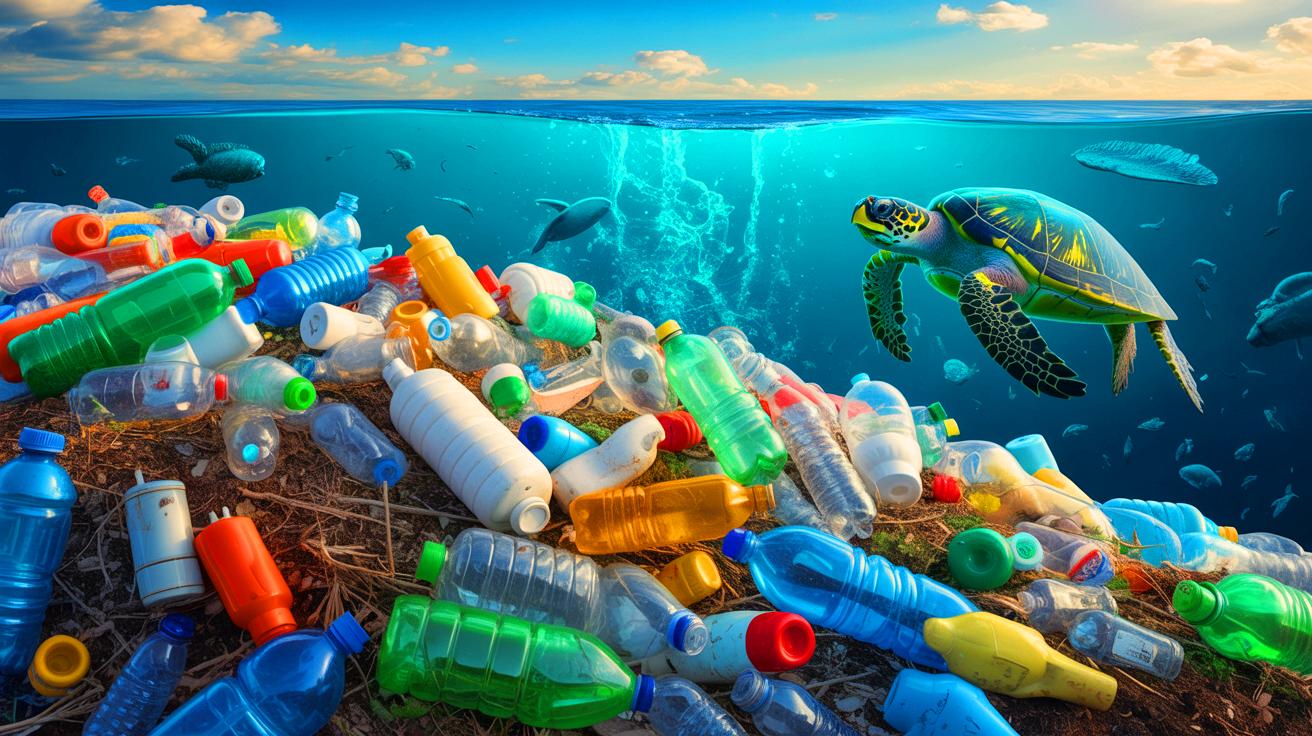- 🌐 Most plastic isn’t recyclable, with less than 9% actually being processed, while the rest pollutes our environment.
- 🛠️ The petrochemical industry has perpetuated the myth of effective recycling to maintain high levels of plastic production.
- 📈 Global plastic production could triple by 2050, leading to a significant environmental crisis if not addressed.
- 🔄 A shift in focus is needed from recycling to a holistic strategy of reducing production, encouraging reuse, and implementing stricter regulations.
Plastic, once hailed as a revolutionary material, is now at the center of a global crisis. As consumers, we’ve been encouraged to recycle plastic diligently, believing it was our contribution to a cleaner planet. However, the harsh reality is that most plastic is not recyclable. This revelation challenges the narrative promoted by industries for decades, begging the question: have we been misled about the effectiveness of recycling?
The Harsh Reality of Recyclable Plastic
For years, people have diligently sorted their plastic waste, feeling assured that their efforts were making a difference. But as it turns out, the majority of plastic isn’t recyclable. A revealing report from the Center for Climate Integrity titled “The Plastic Recycling Myth” exposes this uncomfortable truth. It delves into how the petrochemical industry has perpetuated the myth of effective plastic recycling. The report, based on internal documents and testimonies, uncovers a long-standing strategy designed to maintain the status quo by convincing consumers that recycling was a viable solution. In reality, less than 9% of plastic is actually recycled, with the rest ending up in oceans, lands, and even in our bodies as microplastics.
This narrative has been carefully crafted through advertisements, logos, and educational campaigns since the 1980s. The industry’s goal was never to ensure that recycling worked, but to make us believe it did. Davis Allen of the Center for Climate Integrity notes that the industry never truly intended to recycle effectively. Instead, by promoting recycling, they continued producing plastic without fear of boycotts or government action.
Recycling: A Well-Oiled Marketing Machine
Recycling plastic is a complex chemical task. With each type of plastic having its own unique properties, compatibility issues arise, making recycling costly and inefficient. The quality of recycled plastic is often too low for reuse in similar products. This has not deterred the industry from promoting recycling as a solution. In the 1980s, when cities considered banning certain plastics, the industry responded with a compelling narrative: “Recycle instead of ban!” This strategy allowed plastic to thrive while consumers sorted their waste, believing they were doing good.
Today, activists like Jan Dell warn that the promises of new recycling technologies echo those made 30 years ago. The industry’s story remains the same, urging society to recycle instead of addressing the root cause of plastic pollution.
The Industry Denies, but the Numbers Tell a Different Story
The American Chemistry Council disputes the report’s claims, labeling them as outdated. They argue that genuine efforts are being made to improve recycling and make plastic more sustainable. Yet, the numbers speak for themselves: global plastic production could triple by 2050. This surge encompasses single-use items, packaging, textiles, and more, creating an unseen, yet toxic, tidal wave of plastic waste.
Given these projections, what can be done? Should we abandon recycling altogether? Experts suggest restructuring our approach. The focus should shift from recycling to a more holistic strategy:
Breakthrough air-powered tech claims to recycle 94% of plastic in just 4 hours using moisture
- Reduce: Limit plastic production. Prioritize sustainable, compostable, and bulk packaging options.
- Reuse: Extend the lifespan of products. Encourage reuse, repair, and deposit systems.
- Recycle, but without relying solely on it as a solution.
While recycling has its place, it’s crucial to recognize its limitations. Until governments enforce strict regulations and industries stop flooding the market with unrecyclable products, the promise of recycling remains largely unfulfilled.
What Lies Ahead for Plastic Recycling?
Despite the industry’s optimistic claims, the challenges of plastic recycling are undeniable. Without significant changes, the recycling system will continue to falter, unable to keep pace with escalating plastic production. It’s time to rethink our approach and address the systemic issues that perpetuate this cycle. As individuals, we must champion reduction and reuse, pressuring industries and governments to adopt more sustainable practices.
The journey to a truly sustainable future requires more than just sorting waste. It demands a collective shift in how we produce, consume, and dispose of plastic. Are we prepared to challenge the status quo and redefine our relationship with this ubiquitous material?
Did you like it? 4.4/5 (21)
